Since 2009 the German Ministry of Research and Education funded a project “Measuring the Diversity of Research”. Over the last four years the Berlin research diversity team: Frank Havemann (PI), Jochen Gläser, Michael Heinz, and Alexander Struck published extensively but also organized each autumn a neat, small scale workshop to brainstorm with international experts about almost eternal questions of bibliometrics and science studies: What is a topic? How to delineate a field? What determines a scientific community?
The links to our COST Action are manifold. There is a share interest in bibliometrics and scholarly communication in our Action across the working groups. The relationship between bottom-up clustering techniques from links in word-use, authorship and references in scientific articles and the grouping of articles based on subject terms is a long-term discussed issue in bibliometrics as well as in complex network theory. The search for precise and fast clustering algorithms is a further shared interest.
The underlying principle in science, the fact that all knowledge is connected some way or another, presented itself in the past as a challenge to the task of a librarian to build a (finite) collection – as Bradford’s law shows. In the Internet age it still puts a challenge to Information Retrieval. It also does not make it easier to delineate fields in obligation for proper evaluation. But at the end, the engine of innovation, of new ideas in research, runs on even this connectivity and ambiguity. Field mobility of scientists – a term coined by Jan Vlachy – could not take place without it. One could even say that field mobility is the exploration of existing but invisible or the invention of potential yet not realized links.
It was therefore a big pleasure to see several members of our COST Action KnowEscape participating in this workshop with bibliometricians and sociologists of science. Ismael Rafols and Andrea Scharnhorst are member of the Advisory Board of the Research Diversity project since its beginning, and at this meeting Santo Fortunato, our ViceChair, gave a keynote.
Beyond shared methodological interests there are more fundamental links too. As the presentation of another Board member, Kevin Boyack, showed science maps can be used to define research diversity. The connection between clustering and layouting networks was also thematised and demonstrated by Nees Jan van Eck (Presentation). Science maps whatever coleur can be used an analytic tool to profile groups, institutions, or countries. But, they can also serve as interactive tools in the ethnographic exploration of scientific communities and their practices, as Teresa Velden showed.
What made the workshop in Berlin each September a pleasure to go to, is the unique atmosphere. The workshop with no more than 10-12 participants presents a room to freely exchange thoughts, worries, open questions, vague new research ideas in a very kind and hospitable environment – very much like a WG meeting in a COST Action could also be envisioned. The funding of the research project in Berlin goes to an end, the research on this topic will continue and maybe KnowEscape offers a way to carry on spirit and themes from this group and its project.
Visual Impressions


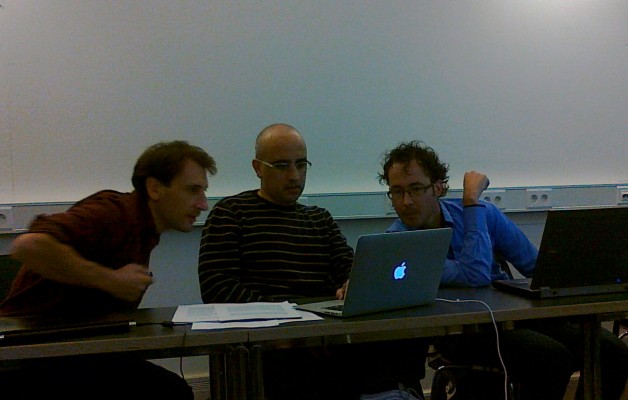
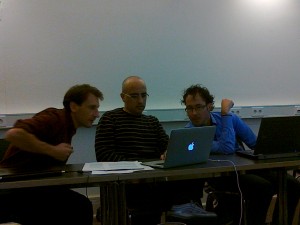
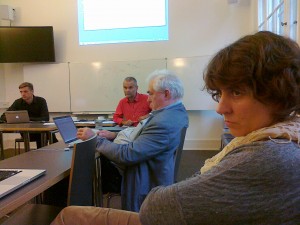
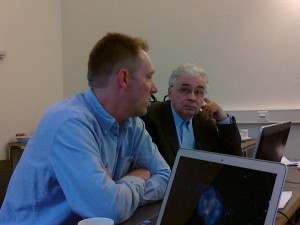
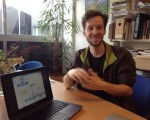
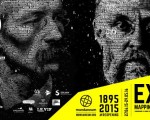
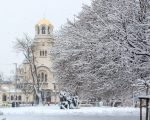
[…] academic discourse started long before TD1210 was funded, but found after 2013 rapidly a home in WG 2 and got the attention of many others […]